-
 bitcoin
bitcoin $87959.907984 USD
1.34% -
 ethereum
ethereum $2920.497338 USD
3.04% -
 tether
tether $0.999775 USD
0.00% -
 xrp
xrp $2.237324 USD
8.12% -
 bnb
bnb $860.243768 USD
0.90% -
 solana
solana $138.089498 USD
5.43% -
 usd-coin
usd-coin $0.999807 USD
0.01% -
 tron
tron $0.272801 USD
-1.53% -
 dogecoin
dogecoin $0.150904 USD
2.96% -
 cardano
cardano $0.421635 USD
1.97% -
 hyperliquid
hyperliquid $32.152445 USD
2.23% -
 bitcoin-cash
bitcoin-cash $533.301069 USD
-1.94% -
 chainlink
chainlink $12.953417 USD
2.68% -
 unus-sed-leo
unus-sed-leo $9.535951 USD
0.73% -
 zcash
zcash $521.483386 USD
-2.87%
Is Bitcoincoin decentralized?
Dogecoin operates on a decentralized blockchain, relying on community-driven development, distributed nodes, and Proof of Work mining to maintain its network without central control.
Jul 05, 2025 at 07:31 pm
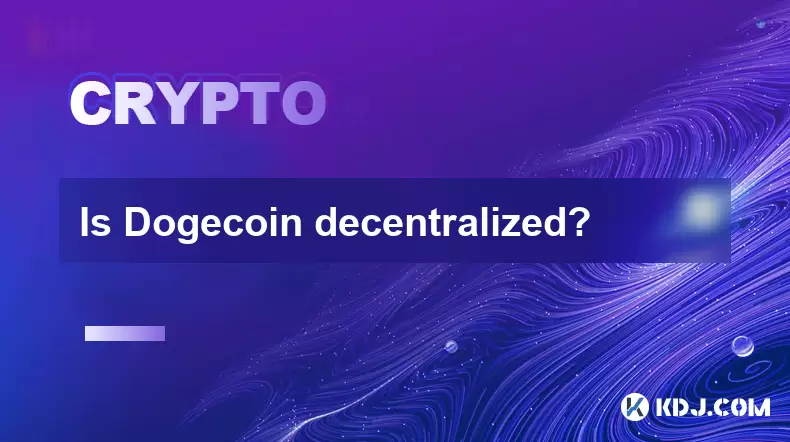
What Does Decentralization Mean in Cryptocurrencies?
In the world of cryptocurrencies, decentralization refers to the distribution of control and decision-making across a network rather than being governed by a central authority. This principle is foundational to blockchain technology, where no single entity has full control over the entire system. A decentralized network relies on a consensus mechanism, such as Proof of Work (PoW) or Proof of Stake (PoS), to validate transactions and maintain the integrity of the ledger.
For a cryptocurrency like Dogecoin, understanding its level of decentralization involves analyzing several factors: its development team, mining distribution, node distribution, and governance model. These elements determine whether the network can resist censorship, withstand attacks, and operate independently of centralized oversight.
How Was Dogecoin Created and Who Controls It?
Dogecoin was created in 2013 by software engineers Billy Markus and Jackson Palmer as a parody of Bitcoin and other serious cryptocurrencies. Initially intended as a joke, it quickly gained popularity due to its friendly Shiba Inu mascot and vibrant community. Despite its humorous origins, Dogecoin operates on a blockchain similar to Litecoin and uses the Scrypt algorithm for mining.
Although Markus and Palmer were instrumental in launching Dogecoin, they did not retain centralized control over the project. The codebase is open-source, meaning anyone can contribute to its development. No single individual or organization owns or controls Dogecoin, which aligns with the core principles of decentralization.
Is Dogecoin's Blockchain Truly Decentralized?
To assess whether Dogecoin’s blockchain is decentralized, one must examine how widely distributed its nodes and miners are. Nodes are computers that run the Dogecoin client and store a copy of the entire blockchain. The more nodes there are, the more decentralized and resilient the network becomes against attacks or failures.
Mining decentralization is also crucial. Dogecoin uses a Proof of Work (PoW) consensus mechanism, which allows miners to validate transactions and secure the network. However, over time, mining pools have become dominant in many PoW-based networks. While Dogecoin does not suffer from extreme centralization like some other cryptocurrencies, it still faces challenges in maintaining a highly distributed mining ecosystem.
Another important aspect is transaction validation and block creation. Since multiple independent miners and nodes participate in the process, this further supports Dogecoin’s decentralized nature.
Community Governance and Development
One of the key indicators of decentralization is how decisions are made regarding updates and changes to the protocol. Unlike some projects with formal on-chain governance systems, Dogecoin lacks a structured governance model. Instead, changes are proposed and implemented through community discussions and developer contributions.
The open-source nature of Dogecoin means that anyone with programming skills can submit improvements or bug fixes. However, major upgrades typically require consensus among developers and the broader user base. This informal process reflects a community-driven approach, though it may lack the formal mechanisms seen in other decentralized projects.
Despite having influential figures like Elon Musk occasionally affecting its price or visibility, no individual can dictate technical changes or control the direction of the Dogecoin protocol.
Comparing Dogecoin to Other Decentralized Cryptocurrencies
When compared to Bitcoin, Ethereum, and Litecoin, Dogecoin shares many similarities in terms of decentralization. Like these coins, Dogecoin operates without a central authority and depends on a peer-to-peer network. However, it differs in aspects such as block time and supply cap—Dogecoin has an unlimited supply, while Bitcoin is capped at 21 million coins.
Some critics argue that Dogecoin’s lack of a fixed supply and formal governance makes it less 'serious' than other decentralized currencies. Nevertheless, from a structural standpoint, Dogecoin remains decentralized, especially when considering its open-source development, distributed node network, and permissionless transaction validation.
Frequently Asked Questions (FAQs)
Q: Can Dogecoin be shut down by a government or company?A: Due to its decentralized structure, no single entity can shut down the Dogecoin network. Even if certain exchanges or services stop supporting it, the underlying blockchain will continue to function as long as nodes and miners support it.
Q: Is there a risk of centralization in Dogecoin’s future?A: Like all cryptocurrencies, Dogecoin could face centralization risks if mining power becomes concentrated in too few hands or if a small group dominates development. However, the current ecosystem maintains a reasonable level of decentralization.
Q: Are Dogecoin transactions private and secure?A: Dogecoin transactions are recorded on a public blockchain and are transparent, but they do offer a degree of pseudonymity. Security is maintained through cryptographic techniques and the decentralized network of nodes and miners.
Q: How does Dogecoin handle software upgrades or forks?A: Software upgrades are typically proposed by developers and adopted voluntarily by users and miners. Since there is no formal governance system, changes rely on community consensus and adoption.
Disclaimer:info@kdj.com
The information provided is not trading advice. kdj.com does not assume any responsibility for any investments made based on the information provided in this article. Cryptocurrencies are highly volatile and it is highly recommended that you invest with caution after thorough research!
If you believe that the content used on this website infringes your copyright, please contact us immediately (info@kdj.com) and we will delete it promptly.
- Super Bowl LX: Coin Toss Trends Point to Tails Despite Heads' Recent Surge
- 2026-01-31 07:30:02
- Aussie Prospector's Ancient Find: Japanese Relics Surface, Rewriting Gold Rush Lore
- 2026-01-31 07:20:01
- US Mint Adjusts Coin Prices: Clad Collector Sets See Significant Hikes Amidst Special Anniversary Releases
- 2026-01-31 07:20:01
- THORChain Ignites Fiery Debate with CoinGecko Over Bitcoin DEX Definitions: A Battle for True Decentralization
- 2026-01-31 07:15:01
- Fantasy Football Frenzy: Key Picks and Pointers for Premier League Round 24
- 2026-01-31 06:40:02
- Cryptocurrencies Brace for Potential Plunge in 2026 Amidst Market Volatility
- 2026-01-31 07:15:01
Related knowledge
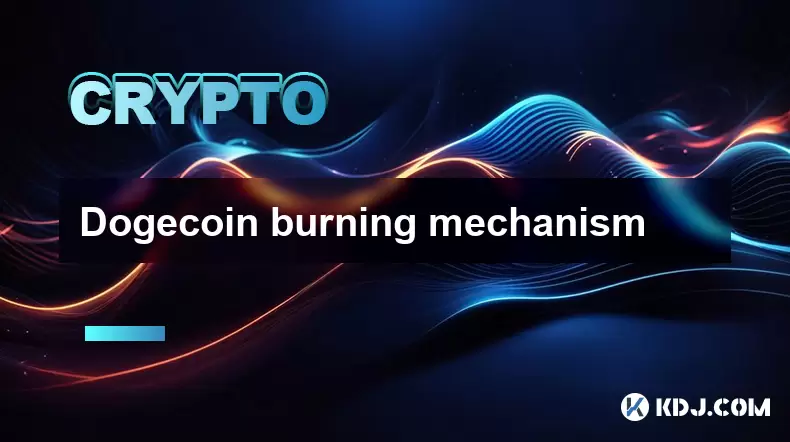
Bitcoincoin burning mechanism
Jul 20,2025 at 09:21pm
What is the Dogecoin burning mechanism?The Dogecoin burning mechanism refers to the process of permanently removing DOGE tokens from circulation by se...
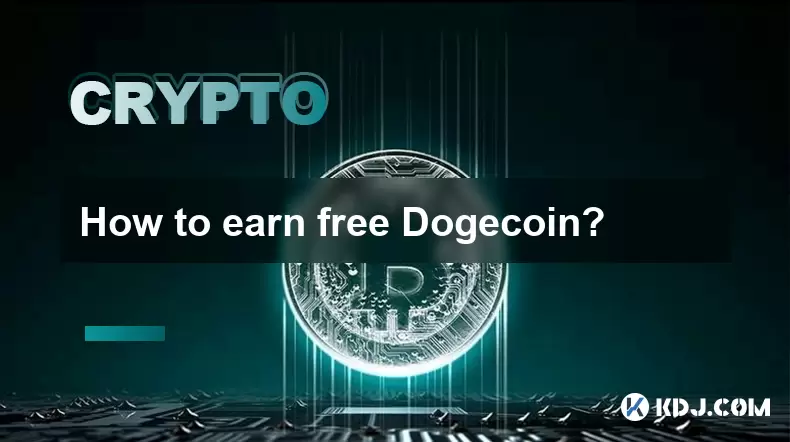
How to earn free Bitcoincoin?
Jul 19,2025 at 10:08pm
What is Dogecoin and Why Earn It?Dogecoin (DOGE) started as a meme-based cryptocurrency in 2013 but has grown into a widely recognized digital asset. ...

Is Coinbase a good wallet for Bitcoincoin?
Jul 19,2025 at 04:42pm
Understanding Coinbase as a Wallet Option for DogecoinWhen considering where to store Dogecoin, Coinbase is often mentioned as a potential option due ...
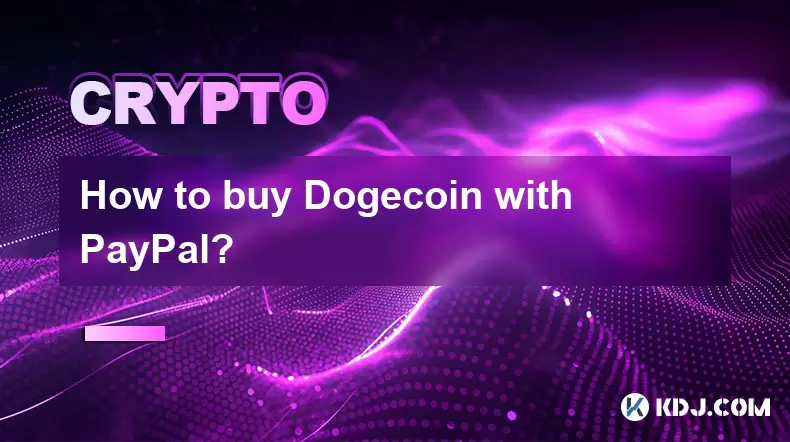
How to buy Bitcoincoin with PayPal?
Jul 23,2025 at 06:57am
Understanding the Basics of Buying DogecoinBefore diving into the process of buying Dogecoin with PayPal, it’s essential to understand what Dogecoin i...
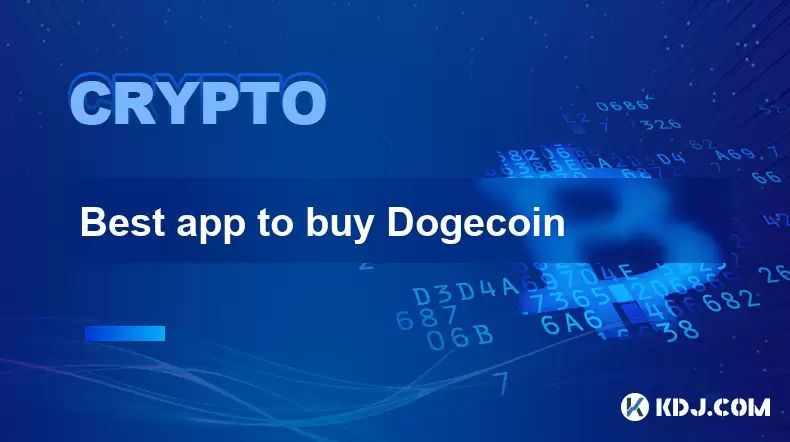
Best app to buy Dogecoin
Jul 23,2025 at 03:08pm
What Is a Cryptocurrency Exchange and How Does It Work?A cryptocurrency exchange is a digital marketplace where users can buy, sell, or trade cryptocu...
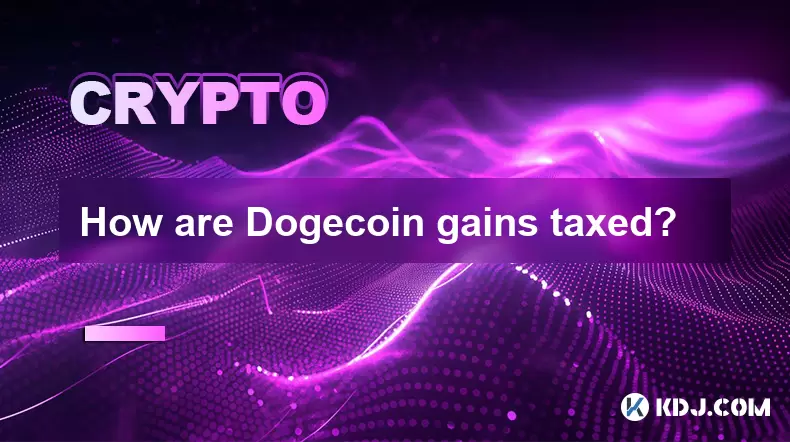
How are Dogecoin gains taxed?
Jul 25,2025 at 07:01am
Understanding the Taxation of Dogecoin GainsWhen it comes to Dogecoin (DOGE), many investors are drawn to its meme-inspired branding and volatile pric...

Bitcoincoin burning mechanism
Jul 20,2025 at 09:21pm
What is the Dogecoin burning mechanism?The Dogecoin burning mechanism refers to the process of permanently removing DOGE tokens from circulation by se...

How to earn free Bitcoincoin?
Jul 19,2025 at 10:08pm
What is Dogecoin and Why Earn It?Dogecoin (DOGE) started as a meme-based cryptocurrency in 2013 but has grown into a widely recognized digital asset. ...

Is Coinbase a good wallet for Bitcoincoin?
Jul 19,2025 at 04:42pm
Understanding Coinbase as a Wallet Option for DogecoinWhen considering where to store Dogecoin, Coinbase is often mentioned as a potential option due ...

How to buy Bitcoincoin with PayPal?
Jul 23,2025 at 06:57am
Understanding the Basics of Buying DogecoinBefore diving into the process of buying Dogecoin with PayPal, it’s essential to understand what Dogecoin i...

Best app to buy Dogecoin
Jul 23,2025 at 03:08pm
What Is a Cryptocurrency Exchange and How Does It Work?A cryptocurrency exchange is a digital marketplace where users can buy, sell, or trade cryptocu...

How are Dogecoin gains taxed?
Jul 25,2025 at 07:01am
Understanding the Taxation of Dogecoin GainsWhen it comes to Dogecoin (DOGE), many investors are drawn to its meme-inspired branding and volatile pric...
See all articles










































































